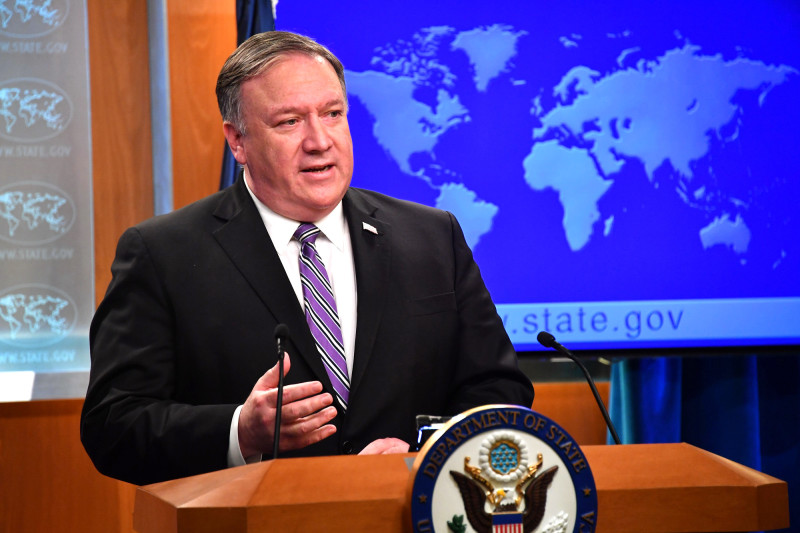
United States Secretary of State Mike Pompeo has notified the US Congress on Wednesday that the Trump administration no longer regards that Hong Kong enjoys the autonomy promised by Beijing.
This could result in the loss of Hong Kong's special trading status with the US and threaten its standing as an international financial hub in Asia.
Pompeo's announcement comes one day before China is expected to pass a controversial national security law that will criminalize "treason, secession, sedition (and) subversion" against the government in Beijing. It will also allow Chinese security forces to operate in Hong Kong "to fulfill relevant duties to safeguard national security in accordance with the law."
Pompeo sent a notice to Congress that China was not living up to obligations from before it regained control of the territory from Britain in 1997.
"I certified to Congress today that Hong Kong does not continue to warrant treatment under United States laws in the same manner as US laws were applied to Hong Kong before July 1997," Pompeo said in a statement.
After it reverted to Chinese rule in 1997, Hong Kong was supposed to enjoy significant autonomy from the communist government in Beijing for 50 years, under the terms of an agreement between China and the United Kingdom, known as the Sino-British Joint Declaration.
That autonomy was to have included protections for free speech and self-rule under what China has termed a "one country, two systems" policy.
"Beijing's disastrous decision is only the latest in a series of actions that fundamentally undermine Hong Kong's autonomy and freedoms and China's own promises to the Hong Kong people under the Sino-British Joint Declaration, a UN-filed international treaty," Pompeo said in a statement on Wednesday, referring to China's national security law.
Today, I reported to Congress that Hong Kong is no longer autonomous from China, given facts on the ground. The United States stands with the people of Hong Kong.
"” Secretary Pompeo (@SecPompeo) May 27, 2020
"No reasonable person can assert today that Hong Kong maintains a high degree of autonomy from China, given facts on the ground," US Secretary of State Mike Pompeo said in a statement. "This decision gives me no pleasure. But sound policy making requires a recognition of reality."
Last year, Congress passed and Trump signed into law the Hong Kong Human Rights and Democracy Act in support of the region's pro-democracy protesters. Under that law, the US must annually verify to Congress that Hong Kong remains autonomous from China, or it risks losing its special status.
Pompeo had initially delayed the report, saying the United States was waiting to see the session of China's rubber-stamp parliament, the National People's Congress.
The State Department's certification is a recommendation and does not necessarily lead to an immediate next step. US officials, including President Donald Trump, now must decide to what extent sanctions or other policy measures in consultation with Congress.
The legislature in China is expected to move forward on a law that would ban "sedition" and other perceived offenses on Thursday.
Hong Kong activists say that the law effectively abolishes the basic freedoms enjoyed in the financial hub.
"While the United States once hoped that free and prosperous Hong Kong would provide a model for authoritarian China, it is now clear that China is modeling Hong Kong after itself," Pompeo said.
"The United States stands with the people of Hong Kong as they struggle against the CCP's increasing denial of the autonomy that they were promised," he said, referring to the Chinese Communist Party.
China reacted angrily to any suggestion that it be punished for what it considers to be a strictly domestic matter.
When questioned about possible US retaliation over the security legislation, Chinese Foreign Ministry spokesperson Zhao Lijian said in Beijing on Wednesday that China would take the necessary steps to fight back against what he called "erroneous foreign interference in Hong Kong's affairs."

















